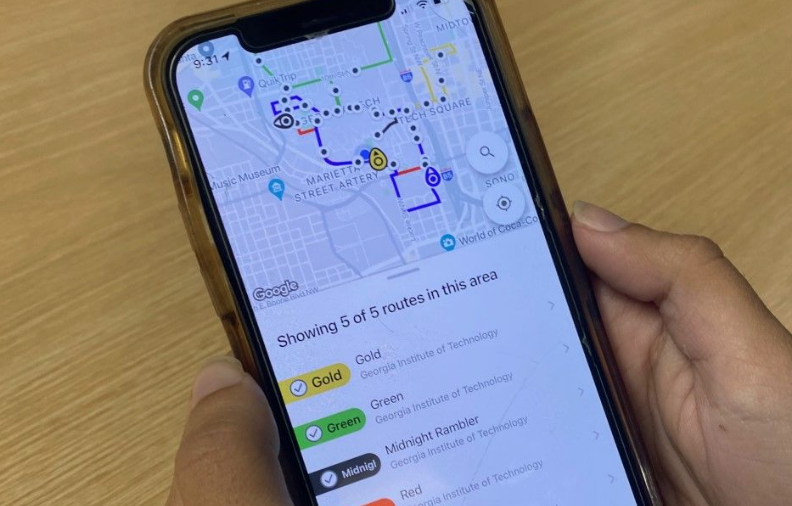
With the unveiling of the new Institute logo and associated design changes, many aspects of campus aesthetics and infrastructure are also ever-changing.
Students may have noticed the new look of the Stinger buses at Tech, and the changes to the fleet have been accompanied by a new tracking app and a plan to improve the sustainability of the Institute’s transportation network.
The recent changes may not be as visually noticeable to students: despite new Stinger bus models, the routes will remain the same as in previous years.
Aaron Fowler, director of transportation, explained the behind-the-scenes work being done to improve the transportation infrastructure for the near future.
“In July, we launched the first portion of our new bus fleet,” Fowler said. Fowler is referring to the sleeker diesel buses that replaced the previous models.
With the old Stinger buses nearing the end of their lifetime, Tech needed to find new vehicles and considered what the next years of parking and transportation would look like, especially as the transportation industry adapts to more clean, efficient and sustainable options.
Accompanying this change in buses was the termination of a contract between the Institute and its previous transit vendor, an outside company that operated and maintained the bus system and managed the bus drivers. Tech decided to start a new contract this summer with First Transit, a different organization that now handles the operation of the buses on campus.
Fowler said there was one additional modification to how Tech provided bus services.
“What’s new to Georgia Tech is owning the fleet. Historically, Georgia Tech has always done a full turnkey, meaning that same vendor would have owned the buses,” Fowler said.
This movement has been a long time in the making according to Fowler and is a necessary step to make transportation at Tech more sustainable.
“Right now, the buses [students have] seen are still the diesel ones that will make up two-thirds of the bus fleet and have about a six-year lifespan. But what we’re waiting on, that should come in November, are the hybrid electric buses. Those are a low floor, heavy duty bus that will last about 12 years,” Fowler said.
These hybrid buses will not require the intense infrastructure overhauls to support fully electric buses, but will significantly increase the full efficiency of Tech’s Stinger bus fleet. Temporary diesel buses are currently occupying the hybrid buses’ spots until November, but Fowler also mentioned how fully electric buses will hopefully replace the current fleet when the time comes.
Transitioning to hybrid and electric vehicles will reduce Tech’s carbon footprint and will also help with transportation accessibility. Fowler said that future fleets will prioritize low floor buses to make boarding easier for all people of all abilities.
Along with the new fleet and vendor, students will now use a different app to track buses’ progress around campus. TransLoc is operated by the new transit vendor and includes all routes and Stinger buses at Tech, excluding the temporary buses until they are replaced in November.
Once students download the app, they can connect to Tech’s campus and view the buses in real time on each route.
TransLoc also displays the expected arrival time for different lines at each bus stop. Fowler said that Stingerettes will soon be added to the app in an effort to consolidate the different transportation trackers at Tech.
The new fleet of buses also boast an automated passenger counter that will be displayed in the TransLoc app.
Future changes to transportation will include reviewing and possibly altering the current bus routes. Fowler says this is in process now and will reflect changes to campus buildings and student needs as time goes on.
For now, students can download the TransLoc app from the App Store or Google Play Store to stay informed on the Stinger bus routes around campus.
